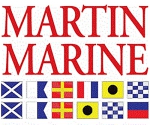Squalls
by Ed Watson, July 12th, 2010
For a sailor from the Canadian west coast, (or from the Pacific Northwest of the USA) it’s an odd feeling sailing in water warmer than the air temperature outside. But those conditions are now facing the Vic Maui boats as the leaders enter what is potentially their last couple of days sailing.
According to readings from an ocean buoy north of Hawaii, the air temperature is 2 degrees cooler than the ocean which is at 77 degrees F. The average wave height is only 6 or 7 feet, but if an odd wave comes by and a boat gets pooped, it will be like taking a warm bath for the crew. Still irritating, particularly at night, but a lot less uncomfortable than it was a week ago. Generally the winds are lighter on the approach to Hawaii but the ocean conditions produce squalls rarely seen on the north west coast of North America. Squalls are both a blessing and a curse, depending on their size. Essentially they are mini storm systems. It means wind, but sometimes it’s hard to tell exactly how much. If you have the electrical power, radars are switched on to watch for squalls. At this point in the race, the last thing a tired crew needs is to be carrying too much sail as they run into a powerful squall, particularly at night. But day or night it’s a bit of a gamble. They’re on you very quickly. Reduce sail too much and you’re not going to be able to take advantage of the wind in the squall. Underestimate the power of a squall, and you risk getting knocked down. I’ve heard of skippers who alter course to try and sail from squall to squall, using the pressure changes to power their boat to the finish line.
But it all depends where you are. Terremoto! reports very light wind, and no squalls. Here is their description of how the nights are going: “….let us give you a quick description of what the nights on deck are like: We have only had stars for a short time one night of all 9 nights. As for the other nights, there have been no stars which makes steering difficult; and no moon which makes seeing the sails difficult. Because of Susan’s injury, we often have 1 person up on deck so that 2 are able to get some rest. This sets up for some cold, lonely and difficult times on deck; but we are making it work. It looks like tonight we will keep the spinnaker up which requires having two people up on deck all night: 1 trimming and 1 at the helm.”
Regardless of tactics, sailing often slows down at this point in the race, at exactly the time crewmembers are hoping for a speedy conclusion to their journey.















